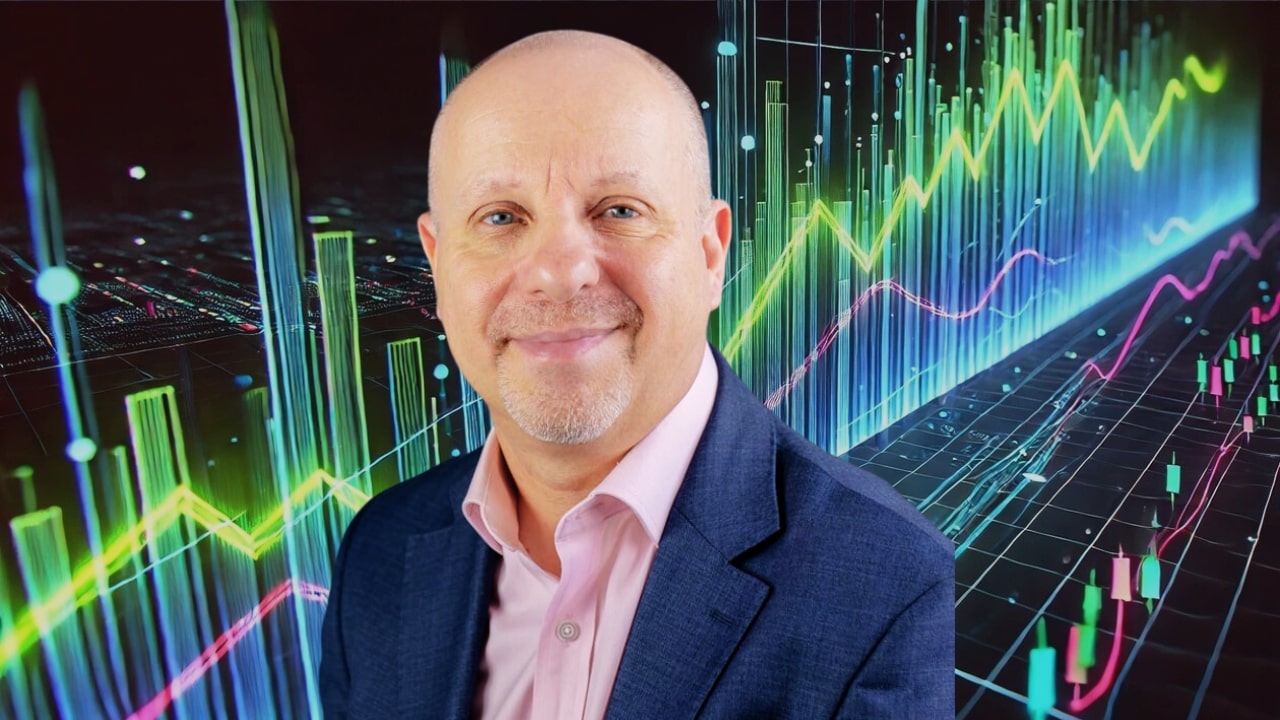(Money Metals News Service) In a recent episode of the Money Metals Podcast, host Mike Maharrey sat down with Philip Newman, Managing Director of Metals Focus, to explore the evolving landscape of the precious metals market.
The conversation touched on the impact of political changes, industrial demand, and shifting investor sentiment on gold and silver prices, providing valuable insights into the future of these critical markets.
(Interview Begins Around 4:28 Mark)
Post-Election Volatility in Precious Metals
The aftermath of the U.S. presidential election saw a notable correction in gold and silver prices. Newman attributed this to market expectations that the Federal Reserve might scale back aggressive rate cuts during Trump’s second presidency.
Markets anticipated rates would rise by 75–100 basis points higher than originally forecast by the end of 2025. Despite this adjustment, gold demonstrated resilience, rebounding to $2,700 per ounce, a signal of continued investor confidence.
Policy Changes and Inflationary Pressures
Trump’s economic policies, including proposed tariffs on major trade partners like China, Mexico, and Canada, could lead to inflationary pressures.
Newman explained that these tariffs might serve as a negotiating tactic rather than a definitive policy, but their enactment could significantly increase costs. Deportation policies, if implemented broadly, could also tighten the U.S. labor market, adding to inflation. The full impact of these measures, however, will depend on how closely Trump’s actions align with his rhetoric.
Safe Haven Demand and Global Risks
Geopolitical uncertainty remains a key driver of safe-haven demand for gold. While tensions in the Middle East have moderated slightly, conflicts such as the Russia-Ukraine war continue to escalate.
According to Newman, the focus of risk-driven buying has shifted from the Middle East to Ukraine, with broader implications for gold’s appeal as a protective asset. Meanwhile, Trump’s potential foreign policy moves, particularly toward Iran and Israel, may further influence safe-haven demand.
Record Industrial Demand for Silver
Silver’s industrial demand is set to hit record levels in 2024, surpassing 700 million ounces for the first time. Newman highlighted the booming photovoltaic (solar) market, where China accounts for half of global solar installations.
However, manufacturers are aggressively reducing silver content in solar panels to manage costs, a trend known as thrifting. This push to cut expenses reflects the challenge of maintaining margins amid volatile silver prices, which recently hovered around $31 per ounce.
The Ongoing Silver Deficit
Silver markets are experiencing a persistent deficit, estimated at 182 million ounces for 2024. While this is slightly lower than the record 261 million-ounce shortfall in 2022, it remains a significant challenge.
Above-ground stocks, including liquidations from retail investors and recycled flatware, have played a critical role in meeting demand. However, exchange-held inventories like those in CME and LBMA vaults have remained stable, suggesting that off-exchange holdings are filling much of the gap.
Shifting U.S. Investor Sentiment
Newman observed a change in U.S. investor behavior, particularly among Republican-leaning individuals. With Trump’s return to power and Republican dominance in Congress, the Senate, and the Supreme Court, many investors feel reassured about the country’s direction.
This confidence has reduced the urgency to buy precious metals, though it hasn’t triggered widespread selling. Meanwhile, Germany, a traditionally strong market for silver coins and bars, has struggled, but 2025 could bring a rebound in demand.
India’s Resilient Role in the Silver Market
India continues to play a pivotal role in the global silver market as the largest consumer of jewelry, flatware, and investment bars. Despite record-high silver prices in rupees, demand in India has held steady.
Newman emphasized the importance of monitoring local price dynamics in markets like India, where price sensitivity shapes buying behavior. The absence of mass liquidations, even at elevated prices, reflects the unique resilience of this critical market.
Looking Ahead to 2025
The precious metals market faces a complex year ahead. Geopolitical tensions, industrial demand, and policy changes under Trump will shape the trajectory of gold and silver.
The silver deficit is expected to persist, with off-exchange holdings continuing to play a vital role in meeting demand. Both gold and silver are likely to remain dynamic markets, influenced by global events and evolving investor sentiment.
About Metals Focus
Metals Focus is a leading independent research firm specializing in precious metals. The consultancy collaborates with organizations like The Silver Institute to provide data on mine costs, market flows, and industrial demand. Their data-driven and unbiased insights are invaluable to investors and industry professionals.
For more information, visit metalsfocus.com.
The conversation with Philip Newman offered a comprehensive overview of the forces shaping the precious metals market, underscoring the importance of informed analysis for navigating this ever-changing landscape.
Key Questions & Answers

The following are the key questions and answers from the Money Metals Podcast interview with host Mike Maharrey and Metals Focus’ Managing Director Philip Newman:
How Did the U.S. Presidential Election Affect Precious Metals Markets?
The election triggered a significant correction in gold and silver prices, primarily due to market expectations of less aggressive Federal Reserve rate cuts under Trump’s second term. Markets anticipated rates would rise by 75–100 basis points higher than previously forecast by the end of 2025. Despite this correction, gold rebounded to $2,700 per ounce, demonstrating resilience and continued investor confidence.
Are Trump’s Policies Likely to Be Inflationary?
Yes, according to Philip Newman, Trump’s proposed tariffs on trade partners like China, Mexico, and Canada could lead to inflationary pressures. These tariffs might be used as negotiating tools, but if enacted, they would increase costs. Additionally, deportation policies could tighten the U.S. labor market, adding further inflationary pressure. The extent of these impacts depends on how closely Trump’s actions align with his rhetoric.
What Role Does Safe Haven Demand Play in Precious Metals Markets?
Safe haven demand remains a crucial factor, driven by geopolitical risks such as the Russia-Ukraine conflict and tensions in the Middle East. Recently, the focus of risk-driven buying has shifted from the Middle East to Ukraine. Trump’s potential hawkish foreign policy, particularly toward Iran and Israel, may further influence demand for gold as a protective asset.
Why Is Silver’s Industrial Demand Reaching Record Levels?
Silver’s industrial demand is projected to surpass 700 million ounces in 2024, largely due to the photovoltaic (solar) market. China, which accounts for half of global solar installations, drives much of this demand. However, manufacturers are reducing silver content in solar panels through thrifting to manage costs, especially as silver prices remain volatile at around $31 per ounce.
How Is the Silver Market Deficit Being Addressed?
The silver market deficit for 2024 is estimated at 182 million ounces. Above-ground stocks, such as liquidations from retail investors and recycled flatware, have helped fill this gap. Exchange-held inventories, including those in CME and LBMA vaults, remained stable, suggesting that off-exchange holdings are addressing much of the shortfall.
How Has U.S. Investor Sentiment Shifted?
Many U.S. investors, particularly those with Republican-leaning views, feel reassured by Trump’s return to power and Republican control of key political institutions. This confidence has reduced the urgency to buy precious metals but hasn’t triggered widespread selling. However, Newman noted this shift might lead to lower demand for precious metals in the short term.
What Is India’s Role in the Global Silver Market?
India is a significant player in the silver market, as the largest global consumer of jewelry, flatware, and investment bars. Despite record-high silver prices in rupees, demand has remained steady, and there have been no mass liquidations. This resilience underscores the importance of monitoring local price dynamics in markets like India.
Where Do Precious Metals Markets Go from Here?
Looking ahead to 2025, geopolitical tensions, industrial demand, and Trump’s policies are expected to shape the trajectory of gold and silver. The silver deficit is likely to persist, with off-exchange holdings continuing to play a vital role in meeting demand. Both gold and silver are anticipated to remain dynamic markets, influenced by global events and evolving investor sentiment.

